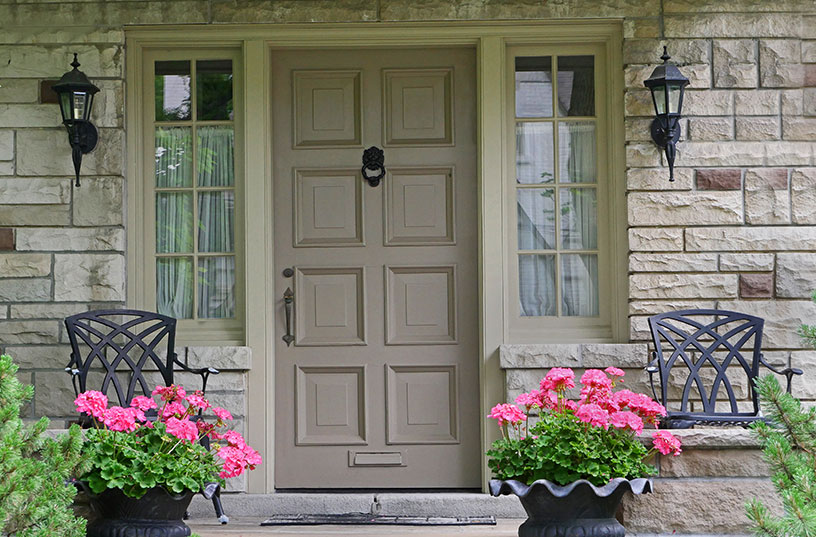With higher interest rates and a real estate market that is cooling off after several very hot years, many people are wondering if it’s still a good time to put their home on the market or purchase a new house. The answer is “yes!” Let’s break it down and look at what’s happening for home buyers and sellers in today’s market.
Should I Buy a House Now or Wait?
According to Fannie Mae, consumer confidence is low right now – 79% of consumers believe it’s a bad time to buy a house – but this attitude doesn’t accurately reflect the real estate market. The dramatic increase in housing prices we saw in 2021 has stalled. In fact, home prices decreased for nine consecutive months before receiving a slight bump in January and February of this year. While some sellers have been slow to react to this decrease, prices are still lower than they have been and the frenzy of multiple offers, bypassing inspections, and buyers paying for closing costs has stopped for the most part. What’s more, a recent report predicts that 36 U.S. markets will become a buyer’s market by the end of the year.
While interest rates are higher than what we’ve been accustomed to over the past couple of years, they are still historically low. Fixed 30-year mortgages are averaging 6.39% (for the week of 4/20/23) which is down from a 52-week high of 7.08% and 15-year fixed mortgages are hovering around 5.76%. In many markets, the inventory of homes is also increasing, which means there are more properties to choose from and buyers have more bargaining power.
Looking ahead, experts expect mortgage rates to range between 5% and 9%, which is a big spread, so timing should play a part in when buyers make a move. According to experts, the reasons for the unpredictable fluctuation in rates include ongoing inflation, Federal Reserve policies, and uncertainty about another recession.
Of course, buying a home is a highly personal decision and there is more to consider than market conditions. Regardless of what the market is doing, potential home buyers should ask themselves a few important questions:
#1. How long do you plan to stay in this home?
You may not be able to predict the future, but you should have an idea about upcoming decisions. For instance, are you getting married? Do you plan on having children in the next 5 to 10 years? How stable is your current job? Are you planning on being in this location long term? If any of these major situations are in flux, you may want to wait before buying a home. The best time to buy a house is when your life is fairly stable, both personally and professionally.
#2. How much of a down payment can you make?
If you want to avoid private mortgage insurance (PMI), you’ll need to make a 20% down payment, which covers the lender in case you stop making payments. Of course, the more you put down, the less your mortgage will be, which means lower monthly payments. Most lenders require a minimum down payment of 3-5%, but that will result in larger monthly payments. There are many options, especially for first-time home buyers, so it’s wise to talk to a mortgage expert and/or financial planner before shopping for a house.
#3. What is your credit score?
You should know your credit score before you begin house hunting. This number will affect your loan options. In general, the “magic number” for conventional loans is 620. Anything between 670 and 739 is considered “good,” and anything between 740 and 799 is considered “very good.” If your credit score is over 800, congratulations, you have “excellent” credit. If your credit score is less than ideal, there are ways you can improve it over time.
#4. Is your budget ready?
According to American Housing Survey data, the median mortgage payment is $1,100. This number can vary quite a bit depending on where you live, how long your mortgage is, how much you put down, and interest rates. Before house hunting, it’s a good idea to sit down with a financial planner and determine how much you can afford. The standard rule of thumb is that housing expenses should be no more than 30% of your gross monthly income. That’s all housing expenses, which include your mortgage payment. mortgage insurance, property taxes, HOA fees, and property insurance.
There are a lot of variables to consider when making such a large purchase. However, if you buy now you can start building equity, which is always a good idea. First time home buyers can beat rising rental costs and begin building wealth now, and then refinance when rates go down. So, if your finances are in order and you’re ready, now is still a good time to make a long-term investment in a home.
Should I Sell My House Now or Wait?
Typically, late spring and early summer are the best times to sell a house, so this time of year is a good bet. As for market conditions, there are a number of factors to consider:
Interest rates – As mentioned, while today’s rates are higher than they have been, they are still historically low. However, higher interest rates make home buying more expensive, which will keep some home buyers out of the market. For some, though, lower prices are making home buying more attractive. If you’re planning to sell your home, you may have to accept that prices are down in most markets. In Michigan, the median sale price was down approximately .39% in February and are expected to continue to decline slightly.
Inventory – When the number of homes for sale in an area is low, sellers have the advantage. The housing inventory will depend on local market conditions. Here in Michigan, the supply of homes on the market remains historically low, giving sellers more control. In March 2023, there were 24,600 homes for sale in Michigan, down 2.8% year over year.
Demand – In some markets, demand for houses has gone up, while inventory remains low. That environment is great for sellers. But again, this will depend on your local market conditions. In March 2023, 33% of homes in Michigan sold below list price. There was a 98.6% sale-to-list price, down 2.3 points year over year. According to Redfin, the top 10 most competitive cities in Michigan are:
- Jenison
- Edgemont Park
- Zeeland
- Belding
- North Muskegon
- Schoolcraft
- Westwood
- Grand Haven
- Madison Heights
- Marysville
The bottom line: most real estate experts believe it’s still a good time to sell your home.
Of course, the same advice applies to sellers as to buyers: deciding whether it’s the right time to sell your home is a very personal decision, which involves more than market conditions. You should also consider the following:
- Are you ready to downsize? If you have an empty nest or are ready to retire, selling your home and finding a more budget-friendly option is a good financial strategy. Other factors such as stairs, home repairs, and yard work may be becoming difficult or impossible. If so, it’s a good time to move.
- Are you relocating? If you’re moving to a new state for a job or to enjoy your retirement and you need the profits from the sale of your home to put toward your next place, selling now may be unavoidable.
- Are you worried about a recession? Some economic experts believe the U.S. economy has a 64% chance of entering a recession in 2023 or 2024. This is far from a sure thing, but if you’re concerned about an economic downturn and you’ve been thinking of selling, now would be a good time.
Talk to the Experts
Whether you’re planning on buying or selling a home, advice and guidance from a professional real estate agent can be invaluable, especially when the housing market is unpredictable. They can help sellers create a plan, present your home in the best light, recommend repairs if needed, and price your home effectively for your specific area. On the flip side, a good realtor can help buyers navigate the mortgage process, understand local markets, avoid costly mistakes, expand your search, evaluate properties, and negotiate the best deal.










